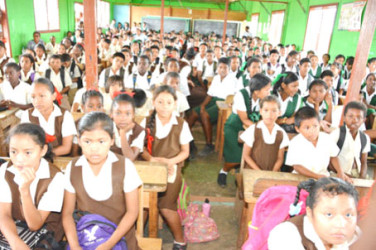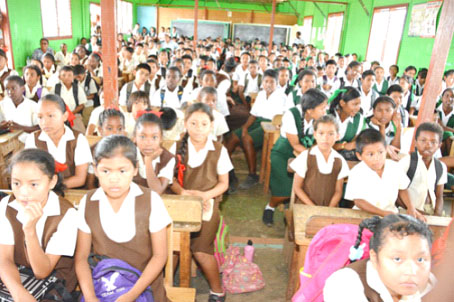First Lady, Sandra Granger and Minister of Social Cohesion, Amna Ally, on Wednesday presented 30 more bicycles and over 200 pairs of shoes to the students of the St. Ignatius Primary and Secondary schools, in fulfilment of a promise made to them, a release from the Ministry of the Presidency said.

“We were in this region and we distributed 52 bicycles and when we were here, we had promised the primary school and some of the students of the secondary school that they [would] benefit from shoes. Today we are here to keep that promise. This present Government is a government, which delivers on promises. As soon as we received the shoes First Lady, Mrs. Sandra Granger said that we had promised you and we must return to fulfil that promise,” Minister Ally said in her address to the students.
The ‘Shoes that Grow’ project was started by Mrs. Granger in collaboration with Ernie Ross, Guyana’s Consul General in Trinidad and Tobago, under the Rethink – Kind Soles Project.
Meanwhile, Chief Education Officer in the Ministry of Education, Olato Sam praised the initiative, noting that it bodes well for fulfilling the Ministry’s mandate to educate the nation. He also commended President David Granger’s addition of breakfast to the now expanded ‘Five Bs’ programme.
So far, the release said, more than 3000 pairs of shoes have been distributed by the First Lady and Minister Ally to various regions across the country. The aim is to ensure that approximately 30,000 students in the hinterland regions are able to benefit.

